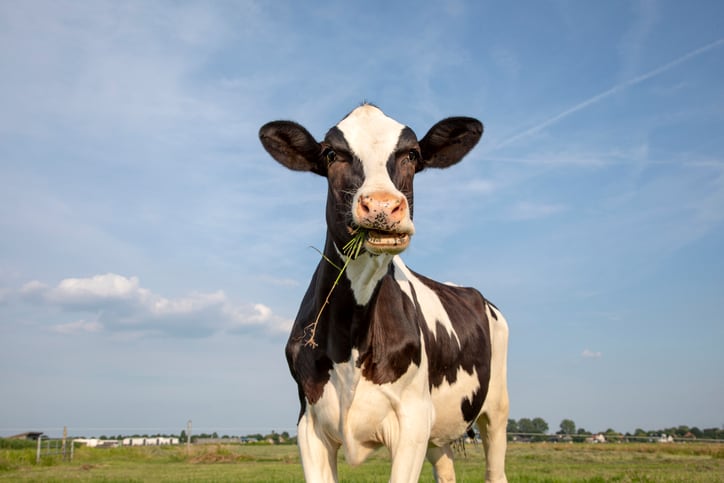Cassava is the third-largest source of carbohydrates globally and one of the world’s most important subsistence crops plays a critical role in food security in developing regions, where the crop is a staple part of diets. Nigeria is the world's largest producer. Other major growers are Thailand and the Democratic Republic of the Congo, Brazil and Indonesia.
But major new diseases or strains of cassava disease tend to appear every 7–10 years, according to the FAO, and pose a severe threat to cassava production in many areas, particularly Africa. One of the most damaging crop viruses on the planet is Cassava Mosaic Disease (CMD).
A study by Synomics, an Anglo-Danish biological insights company, now claims to have identified a genomic pathway for improving the resistance of the Cassava plant to one of the most damaging crop viruses on the planet.
A spokesperson told FoodNavigator the company can isolate those types of cassava plants which are more disease resistant to ensure farmers don't end up with dead crops at the end of the year. This improves yield, ensures more food is available and can help avoid food waste.
Synomics analysed data from more than 5,000 Cassava samples to find potential routes for improving the crop’s resistance to Cassava Mosaic Disease (CMD).
The company has spent the past 12 months developing its proprietary combinatorial Insights Platform to enable animal and crop scientists and producers to get a better understanding of what drives key production traits and innovate accordingly.
The platform identifies novel genetic variants, and in particular the combinations of Single Nucleotide Polymorphisms (SNPs – pronounced ‘Snips’) that orchestrate the whole function of the gene that determines the traits of a plant. When statistically linked to a phenotype (e.g a plant’s height, leaf shape, disease resistance, etc), these SNPs become QTNs (Quantitative Trait Nucleotides), in many ways the ‘holy grail’ of genetics.
In the new research, 67 unique QTNs were identified, narrowing down the search for scientists to develop new and more targeted ways of increasing disease resistance, either through selective breeding, gene-editing or new crop protection products and treatments.
Peter Kristensen, CEO of Synomics, says the business has developed the platform to enable agricultural scientists and producers to get an even better understanding of the crops that they grow: “Our platform provides insights they have not been previously able to liberate from the data they already hold or has already been published,” he explains.
“Synomics is in many respects the missing link between the huge amounts of raw data that farmers and scientists hold and a company’s own research and development team - interpreting the data and leading the team quickly to areas of immediate interest.
“Whilst current state-of-art practices are limited to looking at the impact of each individual SNP in isolation, scientists know that many traits are the result of SNPs (and genes) acting in complex combinations. Synomics is able to analyse and map these combinations, identifying previously disregarded SNPs as highly relevant.”
Synomics’ platform was able to identify novel genetic variants and produce biologically relevant results, for example identifying 285 and 136 unique candidate genes for CMD, not reported before in the literature, related to 1-month and 3-month disease cases, respectively. Furthermore, it was able to identify key biological mechanisms underlying CMD through the novel technique of using well-researched ortholog genes as replacements for poorly annotated species, such as cassava, to find enriched pathways.
Kristensen said these results show the value the Synomics’ platform has in discovering novel targets: “In this particular study, 67 QTNs were identified as either disease resistance or susceptibility loci for CMD and will pave the way for further functional validation and for potential use as gene introgression or editing targets.”
Identifying a small number of high-impact SNPs and QTNs is much more valuable to scientists than simply identifying a large number of SNPs and QTNs. By applying Synomics’ platform, scientists are enabled to target genes for intervention with more certainty and bring products/solutions to market more rapidly and at less expense.
“If we can find ways of treating the disease and increasing the yield, we can address one of the biggest food security issues in the world,” Peter concluded.
The business, which is based in Oxford, UK and Copenhagen, Denmark, says it uses combinatorial analytics to improve the yield and resilience of livestock as well as crops.
Its scientists have identified novel interactions between an animal’s genome and its rumen microbes that could reduce the amount of methane cattle produce. Through selective breeding, it claims this will enable farmers to selectively breed cattle with a significantly lower methane output, thus help them to reduce emissions.
Another study by Synomics identified a way of improving the consistency of egg weights in laying hens by using a new approach to analysing variations within specific genes and then targeting birds with those gene variations for selected breeding to allow for more consistent egg weights and more consistent profits for farmers.




